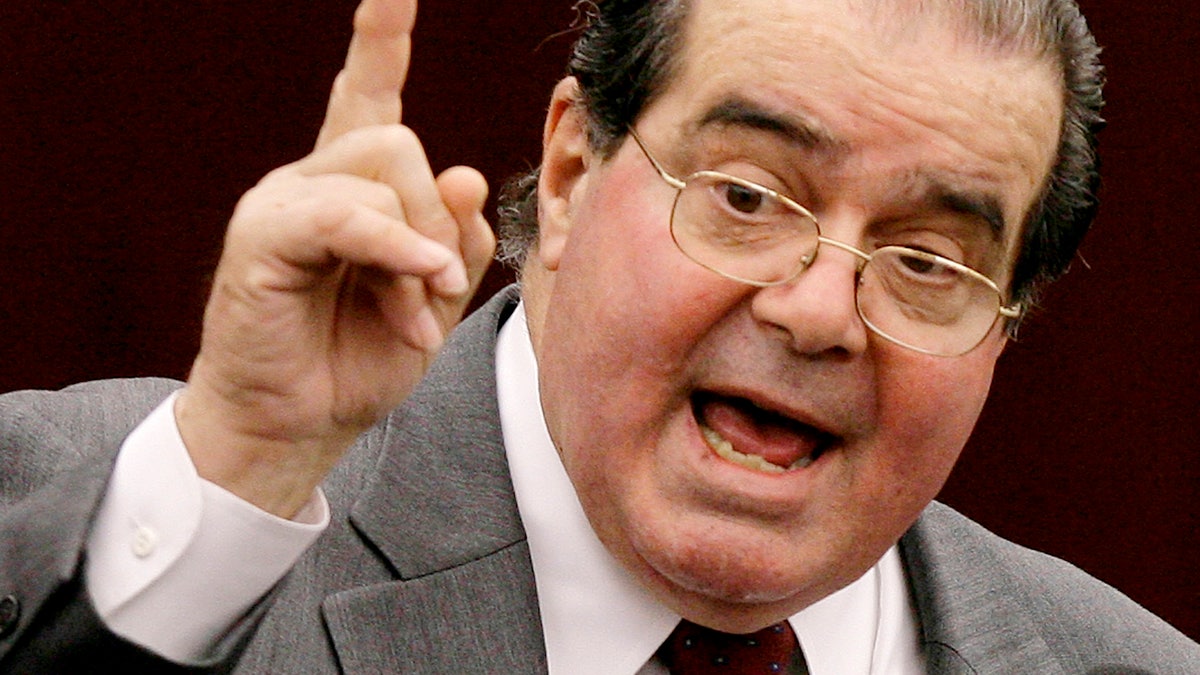
FILE: June 2012: Justice Antonin Scalia. (AP)
The Supreme Court muddled through an hour-long argument Tuesday in a two-decades-old contract dispute between the Pentagon and a pair of defense contractors over scuttled plans to build a stealth airplane that could take off and land on Navy carriers.
At issue is the technical language used by the government when it decided in 1991 to pull the plug on the multi-billion dollar contract. The Pentagon said General Dynamics and McDonnell Douglas -- now part of Boeing -- had missed several critical production deadlines on the A-12 Avenger and cancelled the contract for default.
By saying the contractors were in default, the government could make a claim that now totals $3 billion in damages.
The companies say they're not at fault because the government never shared with them key technical data from ground-based stealth designs that they needed to meet the contract's deadlines. They went to court saying the termination of the contract should have been designated as one of government convenience resulting in no damage payment.
But in order to assert that defense in court, the companies needed to access top secret information which the government refused to produce citing the so-called "state secrets" privilege, which is designed to keep sensitive information necessary for national security from being produced in an open courtroom. This put the contractors in the odd position of asserting a defense for which they could not access the evidence to back up their claims.
The government's use of the "state secrets" claim has come under some controversy in recent years in various War on Terror cases. But the justices didn't seem too keen on using this case as a vehicle for making a grand pronouncement on the scope of the privilege; instead they largely focused on its application to the very technical aspects of the disputed contract.
"Nobody held a gun to their back," acting Solicitor General Neal Katyal told the court saying the contractors knew the government could make a state secrets claim should a dispute arise.
That argument seemed to hold sway with several justices including Stephen Breyer who said the contractors in trying to get around the state secrets claim weren't just trying to throw a monkey wrench into the process but the entire monkey as well.
"You're asking us to put something into a contract we don't know anything about," said lawyer Carter Phillips, representing the contractors.
Justice Antonin Scalia made the case for a middle ground that would acknowledge the "state secrets" claim but nonetheless mark the contract as withdrawn out of convenience. Phillips was amenable to that approach which he described as a "middle way." Scalia cracked that is was part of the court's "go away principle of our jurisprudence."
Katyal didn't go for the compromise saying, "a court shouldn't be picking winners and losers when the state of knowledge is unknowable."
A decision is expected by the end of June.












































